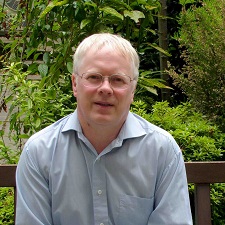Energy and Materials
Focussing on Convergence Research on Energy Sustainability and Future Functional Materials
Dynamic Lead: Dr Lethy Jagadamma (School of Physics and Astronomy)

Dr Lethy Krishnan Jagadamma is a UKRI-Future Leaders Fellow and Principal Research Fellow and leads the Energy Harvesting Research Group at the School of Physics and Astronomy, University of St Andrews. While a Post-doctoral fellow at KAUST she expanded her research expertise to the field of solution-processed photovoltaics and contributed to the development of record-efficient organic and quantum dot solar cells. In 2015, she returned to the UK to join as a Research Fellow at the Organic Semiconductor Centre at the University of St Andrews, UK. In 2017, she was awarded Marie-Curie Individual Fellowship, to focus her research on the ‘Time-resolved photovoltaic properties of hybrid perovskite semiconductors.’ In 2020, March she was awarded the prestigious UKRI-Future Leaders Fellowship to build her research team. Currently, her research focus is on combining material-focused innovation with that of the emerging huge technologies such as the Internet of Things (IoT) and Wearables to positively contribute to achieving the big target of ‘Energy Sustainability. Her research team develops scalable and efficient ambient energy harvesters to self-power disruptive technologies such as IoT so that their reliance on the battery can be reduced. For ‘Sustainable Energy Harvesting’, specifically, her team investigates the indoor photovoltaics (PVs), device physics of indoor PV, ferroelectric properties and piezoelectric properties of solution-processable semiconductors.
Lead: Professor John T. S. Irvine (School of Chemistry)

Highlights of Irvine’s activities include discovery of the Emergent nanomaterials phenomenon, establishing the field of oxide fuel electrodes, delivering high performance direct carbon fuel cells and demonstration of significant hydride ion conductivity. Other important achievements relate to John Irvine FRSE, FRSC has made a unique and world-leading contribution to the science of energy materials, especially fuel cell and energy conversion technologies. This research has ranged from detailed fundamental to strategic and applied science and has had major impact across academia, industry and government. Irvine’s science is highly interdisciplinary extending from Chemistry and Materials through physics, bioenergy, geoscience, engineering, economics and policy.
The quality and impact of Irvine’s research has been recognised by a number of national and international awards, including the Lord Kelvin Medal from the Royal Society of Edinburgh in 2018, the Schönbeim gold medal from the European Fuel Cell Forum in 2016, the RSC Sustainable Energy Award in 2015, with earlier RSC recognition via Materials photocatalysis, lithium ion batteries, non-stoichiometric oxides, Structure/ Property/Function, catalysis and electrocatalysis and bioenergy
.